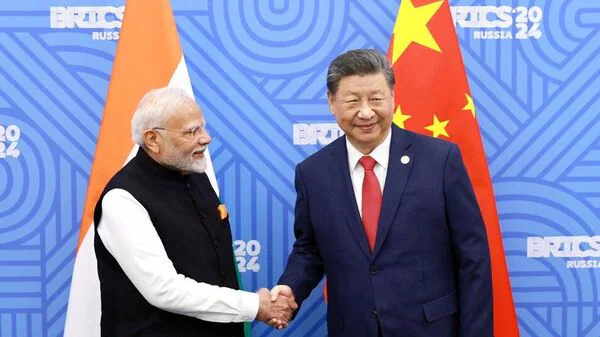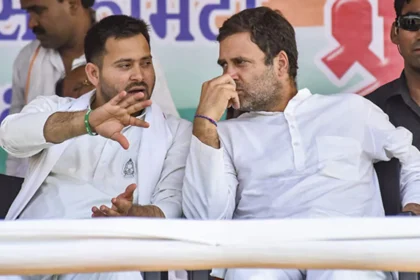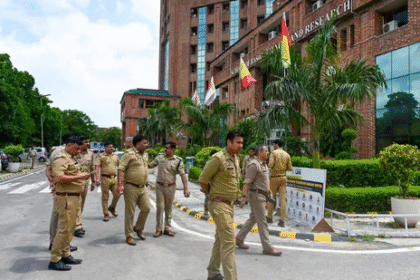Will PM Modi Visit China for SCO Summit? Government Responds Amid Speculation
In the realm of international diplomacy, anticipation and speculation often walk hand in hand. As the Shanghai Cooperation Organisation (SCO) Summit draws near, scheduled to be held in China later this year, the question gaining traction in diplomatic and media circles alike is whether Indian Prime Minister Narendra Modi will attend the high-level gathering in person. The query is not merely academic—it holds serious implications for regional geopolitics, especially in the aftermath of tense India-China border standoffs, evolving bilateral relations, and broader shifts within multilateral frameworks like the SCO.
On July 17, 2025, government sources offered a cautious yet clear signal regarding India’s stance. While they neither confirmed nor outright denied the possibility of PM Modi visiting China, they emphasized that New Delhi is weighing multiple factors before making a final decision. The Ministry of External Affairs (MEA) reiterated that India’s participation in the SCO remains consistent and constructive, but declined to divulge any concrete plans on Modi’s personal attendance.
This official ambiguity, while not unusual in diplomatic settings, has set the stage for intense speculation. Many analysts interpret it as strategic signaling: keeping diplomatic doors ajar while retaining leverage in ongoing India-China negotiations and broader regional alignments.
Strategic Balancing and Historical Context
India’s engagement with the SCO has historically reflected a complex balancing act. Since becoming a full member in 2017, New Delhi has used the platform to advocate for regional stability, counterterrorism cooperation, and connectivity—while also ensuring that its sovereignty and national interests remain uncompromised. The prospect of PM Modi visiting China, particularly after the 2020 Galwan Valley clashes and subsequent military face-offs, introduces a fresh set of political sensitivities and strategic calculations.
Notably, high-level visits between India and China have been sparse in recent years, with communication largely restricted to working-level channels or multilateral sidelines. Should PM Modi decide to attend the summit, it would mark the first high-profile visit to China since those border skirmishes—potentially signaling a thaw, or at least a strategic détente, between the two Asian giants.
However, any such move is likely to be calibrated with extreme caution. The optics of such a visit would be scrutinized not just domestically but globally. India must strike a balance between reasserting its commitment to multilateralism and preventing the perception that it is softening its stance on unresolved border issues.
Domestic Considerations and Political Optics
Domestically, the decision on whether PM Modi should travel to China is intertwined with political messaging. With national elections on the horizon and the Indian populace largely skeptical of Beijing’s intentions, any engagement at the top level must be packaged within a framework of strength and national pride. Public sentiment in India continues to reflect unease over the border tensions, Chinese investments, and cybersecurity threats linked to Chinese-origin platforms and technologies.
Opposition parties have already begun to voice their concerns about any potential Modi-Xi Jinping encounter, framing it as a betrayal of national interest unless preceded by meaningful concessions from China. Meanwhile, sections of India’s strategic community are urging the government to use the SCO as a platform for bold diplomatic outreach—arguing that India cannot afford to be seen as retreating from global forums where China plays a dominant role.
The government’s messaging so far has walked this tightrope by focusing on institutional participation rather than personal involvement. If a decision is made for the Prime Minister to abstain from the summit, India will likely send a high-level ministerial delegation instead—ensuring its presence without elevating the visit’s symbolic value.
The Role of the SCO in a Shifting World Order
The Shanghai Cooperation Organisation has evolved from a regional security bloc to a broader economic and strategic platform, drawing members from Central Asia, South Asia, and Eurasia. In recent years, it has expanded its focus to include energy cooperation, climate policy, cyber governance, and cultural exchange. As global institutions like the United Nations and World Trade Organization face challenges to their credibility, regional alliances like the SCO have assumed a more prominent role.
For India, participating in the SCO serves multiple objectives: keeping a foot in the Eurasian political theater, counterbalancing Chinese influence, engaging with Central Asian economies, and voicing its concerns on terrorism emanating from Pakistan—another SCO member. Modi’s presence at the summit, therefore, would carry weight not only in the China-India context but also in India’s larger geostrategic footprint.
Still, India’s relationship with the SCO is marked by careful pragmatism. New Delhi has resisted Chinese efforts to institutionalize Belt and Road Initiative (BRI) endorsements within the SCO framework. It has also used the forum to reiterate its positions on Afghanistan, sovereignty, and regional cooperation on Indian terms. A physical presence by the Prime Minister in Beijing could provide a platform to assert those positions more forcefully—but only if timed and presented correctly.
india’s potential participation in the SCO Summit in China carries significant economic implications that go well beyond optics or diplomacy. As one of the world’s largest and fastest-growing economies, India’s interest in regional economic frameworks, trade corridors, and energy security plays a vital role in shaping its foreign policy decisions—especially when they intersect with multilateral platforms like the Shanghai Cooperation Organisation (SCO).
While geopolitical tensions with China persist, India has not fully decoupled from economic engagement with its northern neighbor. Bilateral trade between the two countries remains robust, with China still among India’s largest trading partners. However, concerns regarding trade imbalances, technological dependencies, and national security have resulted in India recalibrating its economic outreach toward more balanced and diversified regional cooperation—making forums like the SCO a potential platform for broadening ties with Central Asian republics and Russia.
One of the major economic opportunities that comes with the SCO Summit is India’s access to the energy-rich landscapes of Central Asia. Countries like Kazakhstan, Turkmenistan, and Uzbekistan hold vast reserves of oil, natural gas, and rare earth elements—resources crucial to India’s long-term energy and technology goals. The International North-South Transport Corridor (INSTC), which links India with Central Asia through Iran and beyond, stands as a critical infrastructure narrative tied into the SCO’s regional blueprint.
Moreover, the Belt and Road Initiative (BRI), which many SCO members support, presents both a challenge and an economic alternative India has chosen to opt out of. India’s resistance to the BRI is well-documented—citing sovereignty concerns over the China-Pakistan Economic Corridor (CPEC). Yet, attending the SCO Summit in China would allow New Delhi to remain engaged with the BRI-adjacent economies without committing to the framework, ensuring India remains relevant in conversations about cross-border economic integration.
Additionally, India’s digital and fintech ambitions intersect directly with the SCO’s growing interest in digital transformation. Discussions around blockchain governance, secure cross-border payments, and digital connectivity align with India’s goal of promoting indigenous digital infrastructure. This is especially crucial given global concerns over data sovereignty and technological dependency on Chinese platforms.
As India positions itself as an alternative manufacturing and digital innovation hub to China, the economic dialogue at the SCO Summit serves both as a reality check and an opportunity. If Prime Minister Modi decides to attend the summit, his message may include proposals that assert India’s role as a responsible and self-reliant economic power willing to collaborate within a framework of mutual respect and sovereignty.
Finally, the optics of India participating in discussions on climate financing, green technology cooperation, and food security at the SCO Summit—particularly with China in the chair—would offer another layer of nuance to India’s global leadership ambitions, especially in forums like the G20 and BRICS.
Also Read : Syrian President Vows Protection for Druze Community After Israeli Strikes on Damascus







